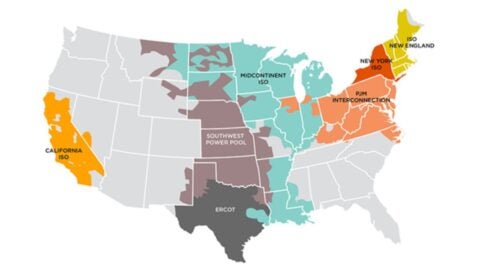Lies, Damn Lies, and Statistics
The author of today’s post, Lisa Moore, Ph.D., is a scientist in the Climate and Air program.
On Wednesday, the DailyTech Blog said that an update to a 2004 survey shows that the scientific community is moving away from a consensus that humans are causing global warming. The survey was submitted to the journal Energy and Environment, but is as yet unpublished.
So is it true? In a word, no, because scientific consensus cannot be surmised from subjective surveys.
The new survey, by Klaus-Martin Schulte, updates a survey by Naomi Oreskes. Oreskes searched journal articles from 1993 to 2003 on the term "global climate change", then categorized the results based on their abstracts. She found that 75 percent either explicitly or implicitly accepted that human activity is causing global warming. Schulte repeated Oreskes’ method on journal articles from 2004 to February 2007 and found that the number had dropped to 45 percent.
The problem is, these surveys are unreliable – there is too much subjectivity in making the categorizations. As AccuWeather.com points out, Benny Peiser, analyzing the same data as Oreskes, came up with very different results. Peiser said that only 30 percent of articles explicitly or implicitly accepted human-caused global warming. If you believe Peiser, then scientific consensus around human-caused global warming has increased, not decreased.
In any case, surveys such as these are an invalid way to discover what the majority of scientists think. The most reliable indicator is the consensus opinion of large and respected scientific bodies. To give a few examples… The IPCC [PDF], the American Geophysical Union, the American Meteorological Society, and the National Academy of Sciences [PDF] (which the White House calls the "gold standard of independent scientific review") all say that human activity is causing global warming. These organizations are composed of and governed by scientists, and could not take this position if it didn’t represent the consensus view of the scientific community.













7 Comments
Dear Lisa,
I find it interesting that you refer to opposing viewpoints as “lies, damn lies.” Is that how you debate an issue?
Just for your information, there are viewpoints on both sides of the issue. Some support your global warming viewpoints, others don’t, as in the website listed below:
http://en.wikipedia.org/wiki/List_of_scientists_opposing_global_warming_consensus
I’m not saying which side is correct. I’m just saying that the debate is not as cut and dry as you say it is. And there are respected scientists and organizations with opposing points of view.
But calling opposing viewpoints “lies, damn lies” takes believability away from your argument and lowers it to just namecalling, even if you have facts to back up your argument.
K.C. Weber
Lisa, I agree with K.C. Weber.
When you debate the topic with name-calling it lowers the validity of all your comments. In truth I think there will always be opposition when it comes to global warming. All those scientists and organizations that oppose each other have to leave their personal interests behind to present the truth to the public, (instead of results that are produced based on who funds them wants the answer to be). Due to how the world works it will take time for a consensus to emerge until the situation is even farther out of hand.
Colleen S.
You can blame the title of the article on me. I’m the editor of the blog, I edited Lisa’s article, and I chose the title. It’s actually the title of a book that was rather famous in its time:
Lies, Damn Lies, and Statistics: The Manipulation of Public Opinion in America
When I was in graduate school, it was required reading. Of course, the study of statistics was a big component of my graduate training (not to mention I was in graduate school a few years ago). I’m sorry if the reference was too obscure and the title caused offense.
0) Lies, Damn Lies, and Statistics is a fine book (and title), should be part of critical thinker’s bookshelf, along with “Innumeracy”, “How to Lie With Statistics”, “How to Lie with Charts”, and “How to Lie with Maps”. and maybe “Visual Display of Quantitative Information”.
1) The Schulte study didn’t “update” Oreskes. It used different rules. Oreskes is a well-published geoscientist / science historian; Schulte is a well-published enodcrinologist.
2) Google: less than half all published scientists endorse global warming
to see how widely this story has gotten.
3) Peiser’s results were fairly thoroughly discredited.
4) This is being heavily covered by sleuths elsewhere:
See especially “Chris” comments demanding apologies, thretening lawsuits, etc.
http://scienceblogs.com/strangerfruit/2007/09/schulte_responds_to_oreskes.php
http://scienceblogs.com/deltoid/2007/09/schulte_replies_to_oreskes.php
http://fergusbrown.wordpress.com/2007/09/07/the-truth-will-out/
Keywords: Lord Christopher Monckton, Klaus-Martin Schulte, Benny Peiser, Marc Morano (EPW), Bog Ferguson (SPPI).
Hi John. I remember “How to Lie with Statistics”. That was a good one, too. I haven’t seen the others – I should take a look.
Thanks for the links! And sorry your post was temporarily held up from appearing – it was the links. The spam filter grabbed it.
Several interesting further developments:
1) Tim Lambert showed absolutely clear plagiarism in Schulte’s letter to Oreskes/Fox, i.e., the one sent on Labor Day demanding apologies or resignation, which was then posted on SPPI’s website 2 days later and press-released to the world by Rob Ferguson.
http://scienceblogs.com/deltoid/2007/09/schulte_replies_to_oreskes.php
Not only plagiarism, but plagiarism of error-ridden and already discredited material from Peiser, via Monckton, that cast doubts on Schulte’s credibility to do this study in the first place.
2) AND THEN, it turns out that the poorly-regarded journal, Energy and Environment, where this was supposed to get published … wasn’t interested in doing so…
http://www.desmogblog.com/schultes-analysis-not-published-not-going-to-be
Hi John,
Thanks for posting the follow-up and links – appreciate it!